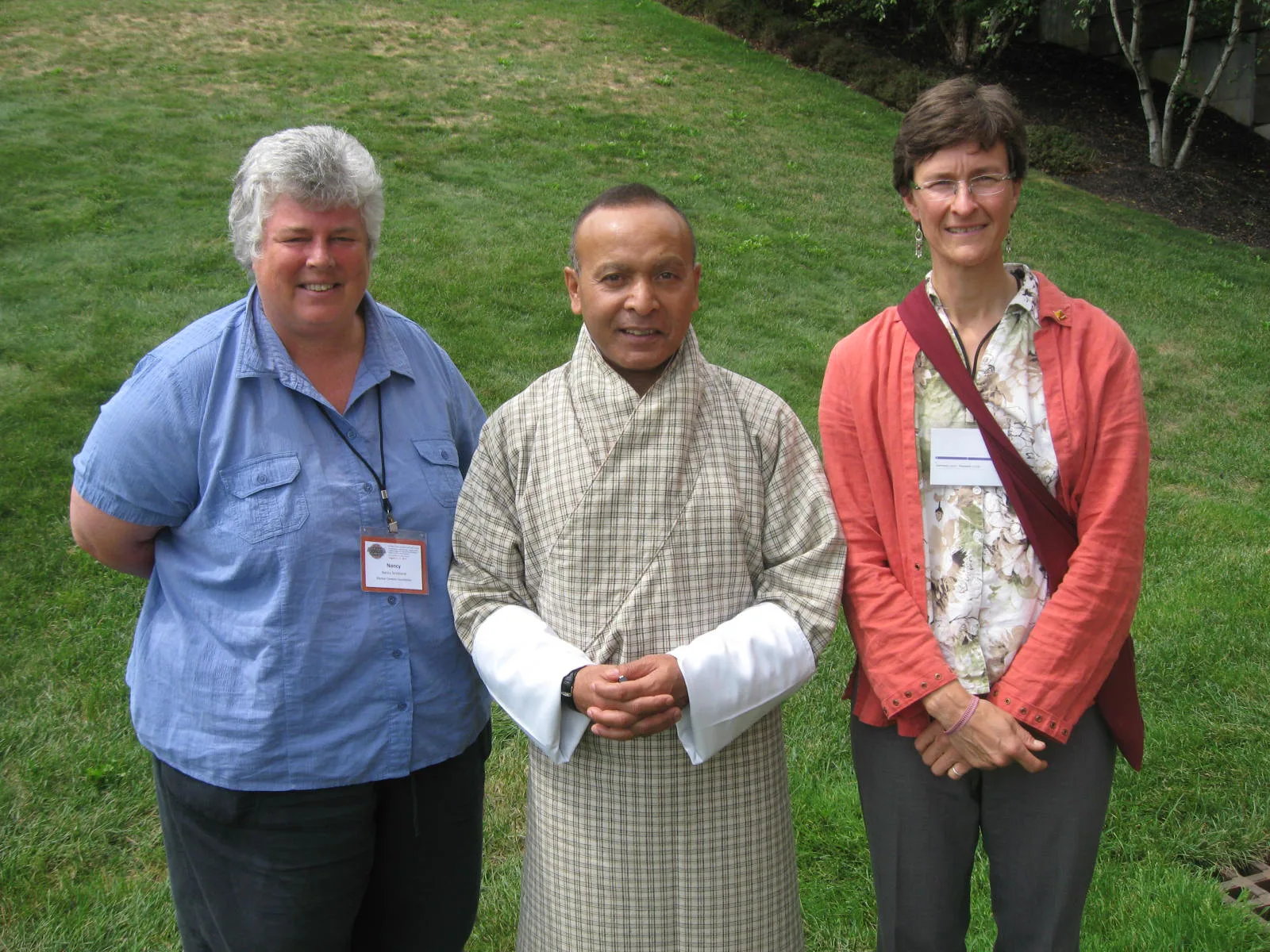SFS Dean on Ecology and Education
This week was a conference double-header for the SFS Vice President of Academic Affairs. After a week attending the 97th meeting of the Ecological Society of America (ESA) in Portland, Oregon, I dashed home to participate in an innovative conference co-hosted by the Bhutan-Canada Foundation and Cushing Academy over the weekend in Ashburnham, Massachusetts.
At ESA we were so fortunate to hear a keynote address from Dr. Jane Lubchenco, Undersecretary of Commerce for Oceans and Atmospheric and NOAA Administrator, who honored the late Nobel Laureate Elinor Ostrom by encouraging ecologists to take immediate action on finding and implementing solutions to environmental problems. “Waiting for global solutions is not the way to go,” she said, and highlighted the critical importance of use-inspired research over pure basic, or even applied research. It was ask if Dr. Lubchenco was speaking directly about the SFS education and research model with our five year research plans designed to address local needs.
At the Educating for Sustainable Happiness conference educators came together from the U.S., Canada and Bhutan to explore values, crossing cultures, consider technology, and forge global partnerships in support of a 21st Century education. The special focus on Bhutan encouraged speakers and attendees to converge on the concept of Gross National Happiness as a driving principle for innovative and effective education. The conference was attended by His Excellency Thakur S. Powdyel, Minister of Education of the Royal Government of Bhutan, and a contingent of Bhutanese educators.

While in Bhutan in May this year I was invited by Bhutan-Canada Foundation Executive Director Nancy Strickland to speak at the conference about the SFS field-based education model and our Bhutan summer program, now going into its fourth year. Strickland has been a strong supporter of SFS in Bhutan over the years, offering advice and looking for synergies with other educational initiatives in the country. She attended and was highly impressed by the SFS student research symposium this year held in the country’s capital city of Thimphu at the end of the program in July.
In my talk I spoke about the value of field-based, international education for training the next generation to tackle the complex challenges of sustainable development around the world. I emphasized the SFS notion that living and learning in the environment and communities of study provides a context for the rapid and lasting development of multiple literacies in students: environmental literacy, cross-cultural literacy, and sustainable development literacy. Students connect to the subject matter, and subjects, through study, outreach and play, and they process these experiences through social and personal values. But, their perspective evolves as they observe and actively inquire about the environmental and development issues around them.
I was reminded of the value of the SFS education by the two dozen or so SFS alumni I spoke with at the ESA conference. Alumni from the last century and this present one passed by the SFS exhibit table to pay their respects to SFS, where many got their feet wet with science and research. Our alumni are professors, consultants, graduate students, and government agents. Four of our recent Distinguished Student Researchers presented research at the conference, Elizabeth Forbes (SFS Australia, Spring 2011), Luke Nolby (SFS East Africa, Fall 2011), Justin Dohn (SFS Australia, Spring 2008), and Callin Switzer (SFS Australia, Spring 2009).
SFS alumni, let us know if you present or plan to present your SFS research at conferences!
Related Posts

Reuniting with Tanzania: Eric Walsh’s “Reunion Flag” Keeps the Spirit Alive

Restoration on a Cinder Cone: A Syntropic Story
